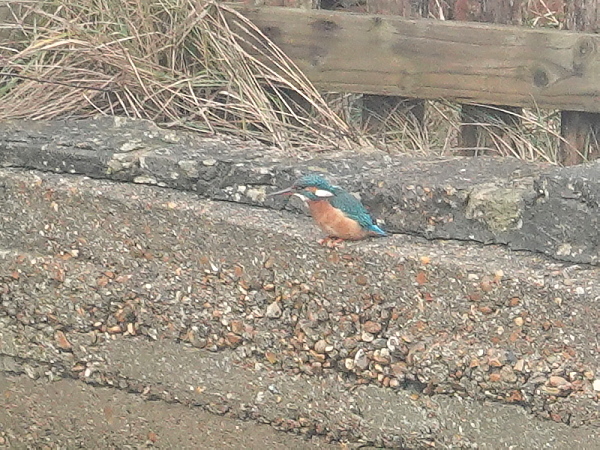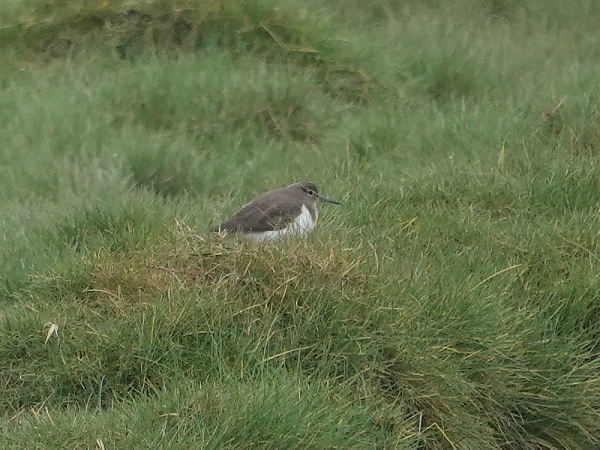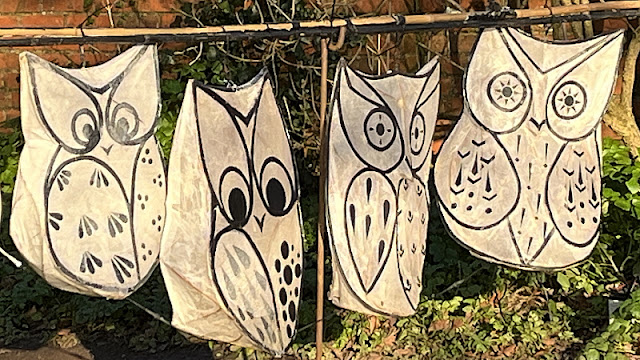Monday 17 February. Brooklands with Megan and Otis: 3 Little Grebes, Peregrine (over coast road) and Chiffchaff. Middle Road: female Lord Derby's Parakeet.
Tuesday 18 February. Mile Oak-Perching Hill with Otis: A very impressive 900+ Stock Doves, 2 Sparrowhawks, 3+ Red Kites, 3 Buzzards, 2 Kestrels, 20+ Skylarks, 6 Stonechats, 5-600 Linnets, 6 Goldfinches and 50 Corn Buntings.
 |
| Linnets on the Downs |

 |
| Stock Doves on the Downs |
 |
| 50% more than I'd estimated at the time |
Wednesday 19 February. Adur with Megan and Otis: 26 Teal, 71 Lapwings, 2 Grey and a Ringed Plover, 22 Turnstones, Dunlin, 350 Herring, 26 Great and 7 Lesser Black-backed Gulls, and 3 Meadow Pipits. Middle Road: Grey Heron (flying E).
Thursday 20 February. Harbour Way/Boardwalk and Shoreham Fort with Megan and Otis: 200 Brent Geese (4 flocks including 95E:1W), Great Crested Grebe (on sea), 9 Teal and 2 Oystercatchers.
 |
| Oystercatcher at Harbour Way |
Friday 21 February. Widewater 09:30-13:00 with Otis: 41 Mute Swans, 14 Teal, 8 Little Grebe, Coot on the lagoon and a Turnstone and 17 Dunlin E along the beach. During 10:45-12:45 seawatch: Brent Goose 550E (including flock of 220), 41 Shelduck 2E, Pintail 90E, Mediterranean Gull 9E:1W (all adults) and unidentified diver 2E.
 |
| Brent Geese passing Widewater |


Sunday 23 February. Dacre Gardens/A283 with Megan and Otis. Red Kite.
Monday 24 February. Widewater 08:55-11:15 with Otis: 41 Mute Swans, 11 Teal, 2 Coot, 8 Little Grebe and a Kingfisher on the lagoon; 10 Ringed Plover, 15 Turnstone and 46 Dunlin roosting on the beach; 17 Great Crested Grebe on the sea, 3 Oystercatchers E and an adult Mediterranean Gull W. Later Sparrowhawk over our house.
 |
| Kingfisher at Widewater |













































